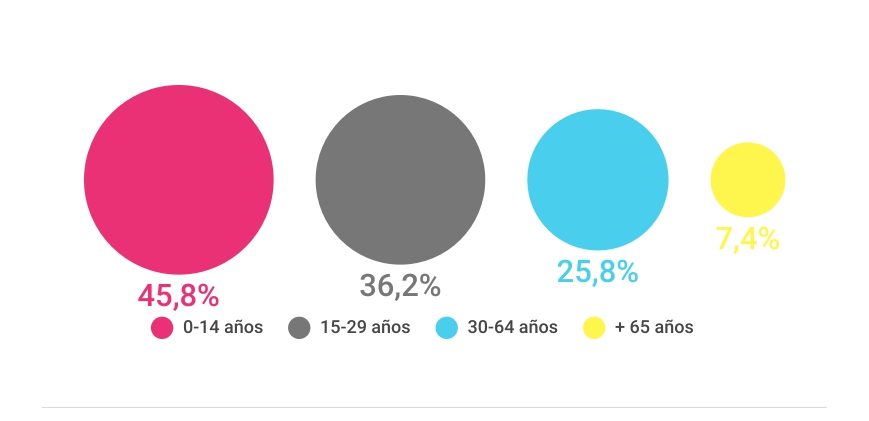Early childhood is a crucial stage for the physical, cognitive and emotional development of people. All children have the right to achieve the full development of their capabilities and potentialities; yet in Argentina, in spite of significant progress, the rights of children are still being undermined.
The current state of affairs reveals that during the last decade Argentina has experienced an ‘infantilisation’ of poverty, as in spite of a decline, over 44% of children live in poverty. In addition, malnutrition has increasingly become a concern for public health, due to unhealthy and nutrient-deficient diets, and it is more prevalent in the most vulnerable sectors of society.
Moreover, in Argentina, the State provides universal healthcare and there is a high share of the population that resorts to alternative healthcare providers. Nonetheless, maternal and infant mortality are still pending matters of attention, access to sexual and reproductive health services is not guaranteed, and the adolescent fertility rate remains high.
It is also worth noting that female poverty is the counterpart of the infantilisation of poverty. The households with more children are also proportionately more feminine. One of the reasons for this is the unequal distribution of upbringing and care between genders. This also impacts on women having fewer possibilities of accessing and staying in the labour market, which impedes poverty alleviation.
What this reveals is that social protection floors are not guaranteed for all. One of the main obstacles for this is the lack of follow-up, monitoring and evaluation in policy implementation.
This document, prepared for CIPPEC’s participation at the United Nations ECOSOC’S High Level Political Forum in 20017, describes Argentina’s situation, the existing regulations and the public policies implemented, and provides policy recommendations that can contribute to the achievement of the SDGs.

